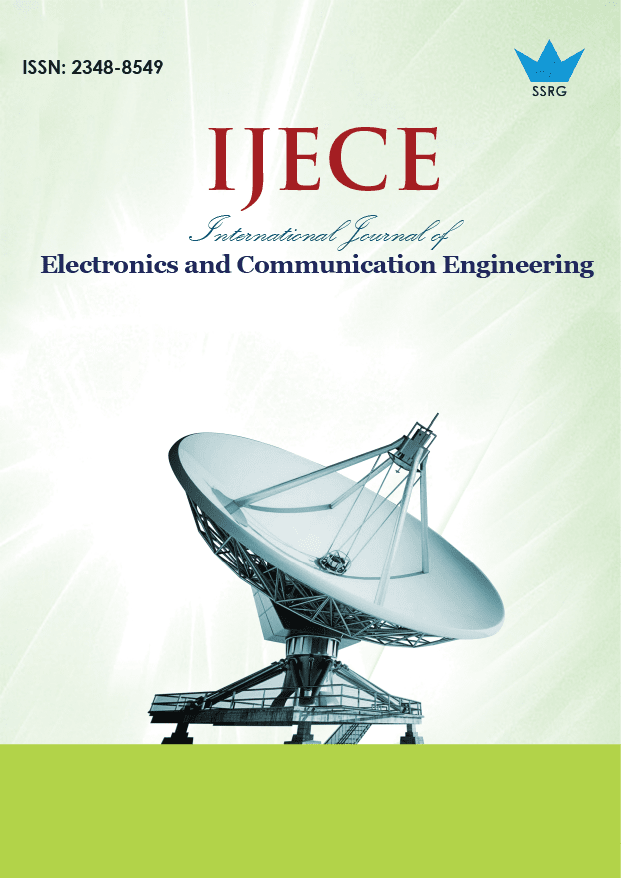Federated Intelligence: A Privacy-Preserving Machine Learning Framework for GMP and GDP Compliance in API Supply Chains

| International Journal of Electronics and Communication Engineering |
| © 2025 by SSRG - IJECE Journal |
| Volume 12 Issue 6 |
| Year of Publication : 2025 |
| Authors : Hari Kiran Chereddi, R. Radhika |
How to Cite?
Hari Kiran Chereddi, R. Radhika, "Federated Intelligence: A Privacy-Preserving Machine Learning Framework for GMP and GDP Compliance in API Supply Chains," SSRG International Journal of Electronics and Communication Engineering, vol. 12, no. 6, pp. 247-263, 2025. Crossref, https://doi.org/10.14445/23488549/IJECE-V12I6P120
Abstract:
The growing complexity of the supply chains, the pharmaceutical industry in particular, requires a Product Digital Twin to comply with Good Manufacturing Practice (GMP) and Good Distribution Practice (GDP) guidelines. This article presents a federated intelligence-enabled privacy-preserving machine learning approach to enforce life science standards and regulations in the route of API in the context of the systems of systems. The framework utilizes a federated learning approach, which means decentralized machine learning models can be trained together among various stakeholders without sharing any confidential data. This will help to alleviate the increasing concern over data privacy in the regulated and sensitive data industries. Leveraging federated intelligence, the platform also ensures that sensitive supply chain data, such as production processes, shipment tracking and inventory management, remains secure and private while still allowing the application of advanced data analytics for compliance monitoring and optimization. Moreover, the proposed system achieves superior traceability and no confidential company data are leaked while the integrity of each link in the supply chain is guaranteed according to GMP and GDP laws. The results indicate that such a federated learning-based framework increases the effectiveness of monitoring compliance in the water industry, ensures privacy, and minimizes the risks of data breaches. The paper finishes with a discussion about the implications of federated intelligence for regulatory compliance, privacy protection, and the future of supply chain management within heavily regulated industries.
Keywords:
Federated Intelligence, Privacy-Preserving Machine Learning, GMP Compliance, GDP Compliance, API Supply Chains, Federated Learning.
References:
[1] Isaak Kavasidis et al., “A Federated Learning Framework for Enforcing Traceability in Manufacturing Processes,” IEEE Access, vol. 11, pp. 57585-57597, 2023.
[CrossRef] [Google Scholar] [Publisher Link]
[2] Geraldine O Mbah, “Data Privacy in the Era of AI: Navigating Regulatory Landscapes for Global Businesses,” International Journal of Science and Research Archive, vol. 13, no. 2, pp. 2040-2058, 2024.
[CrossRef] [Google Scholar] [Publisher Link]
[3] Takis Katsoulas, Ioanna Fergadiotou, and Pat O’Sullivan, Towards a Shared European Logistics Intelligent Information Space, Digital Supply Chain Transformation: Emerging Technologies for Sustainable Growth, Cardiff University Press, pp. 99-119, 2022.
[CrossRef] [Google Scholar] [Publisher Link]
[4] Mark Allen Durivage, The Certified Pharmaceutical GMP Professional Handbook, ASQ Quality Press, pp. 1-473, 2016.
[Google Scholar] [Publisher Link]
[5] Hedley Rees, Supply Chain Management in the Drug Industry: Delivering Patient Value for Pharmaceuticals and Biologics, Wiley, pp. 1-458, 2011.
[Google Scholar] [Publisher Link]
[6] R.D. McDowall, Data Integrity and Data Governance: Practical Implementation in Regulated Laboratories, Royal Society of Chemistry, pp. 1-598, 2018.
[Google Scholar] [Publisher Link]
[7] Jose Ma. Luis P. Montesclaros, Paul Teng, and Mely Caballero-Anthony, “Digital Technology Utilization in the Agriculture Sector for Enhancing Food Supply Chain Resilience in Asean: Current Status and Potential Solutions,” Economic Research Institute for ASEAN and East Asia, pp. 1-155, 2023.
[Google Scholar] [Publisher Link]
[8] José Rodríguez-Pérez, Data Integrity and Compliance a Primer for Medical Product Manufacturers, ASQ Quality Press, pp. 1-279, 2019.
[Google Scholar] [Publisher Link]
[9] Michael Has, Sustainable Products: Life Cycle Assessment, Risk Management, Supply Chains, Ecodesign, De Gruyter, pp. 1-243, 2022.
[Google Scholar] [Publisher Link]
[10] George Bohoris, “Good Manufacturing Practices (GMPs) and Process Validation in the Pharmaceutical Industry: An In-Depth Analysis,” Master Thesis, Univ of Piraeus, pp. 1-98, 2022.
[Google Scholar] [Publisher Link]
[11] T.M. Vinod Kumar, Design of Indo-Pacific Core and Peripheral Digital Economic Communities, Indo-Pacific Core and Peripheral Digital Economic Communities, Springer Nature, pp. 3-163, 2025.
[CrossRef] [Google Scholar] [Publisher Link]
[12] Christopher Ford, Charles Clancy, and Duane Blackburn, “A ‘HORIZON STRATEGY’ Framework for Science and Technology Policy,” The MITRE Corporation, pp. 1-48, 2021.
[Google Scholar] [Publisher Link]
[13] Yuriy Safonov et al., “Strategic Imperatives for Digitisation of the Ukrainian Pharmaceutical Industry,” Baltic Journal of Economic Studies, vol. 10, no. 2, pp. 238-251, 2024.
[CrossRef] [Google Scholar] [Publisher Link]
[14] Paul Morris, “Pharmaceuticals Supply Chain Management: Buffering & Bridging Response Strategies in Shortage Management,” Doctoral Thesis, Aston University, pp. 1-358, 2018.
[Google Scholar] [Publisher Link]

 10.14445/23488549/IJECE-V12I6P120
10.14445/23488549/IJECE-V12I6P120